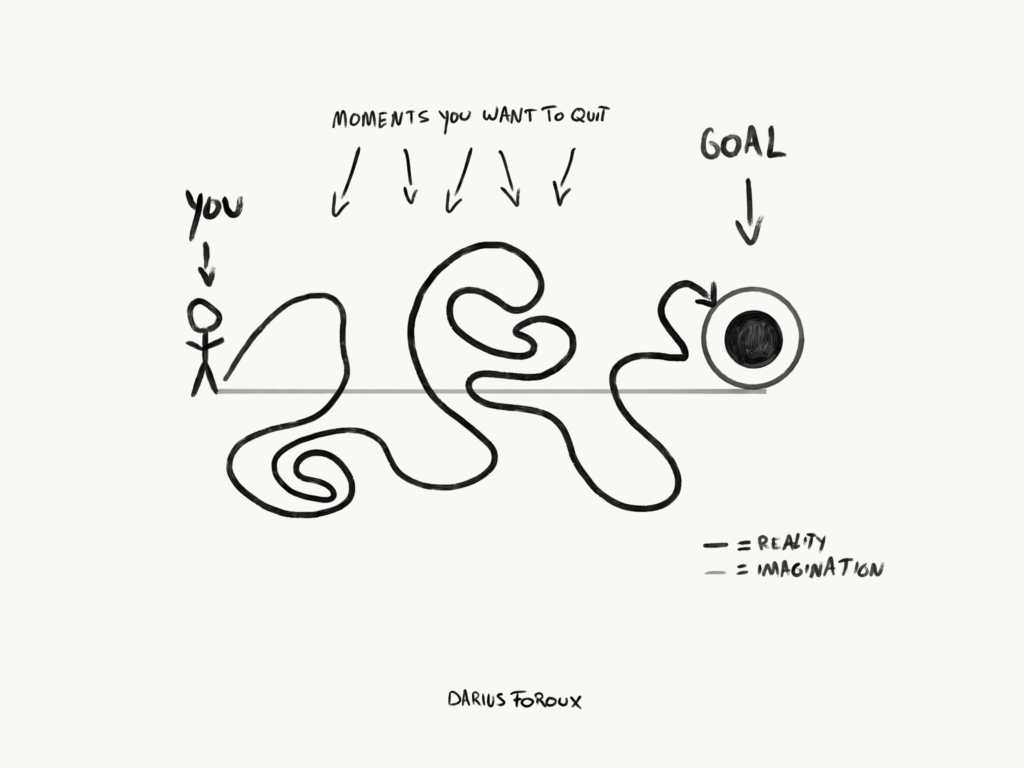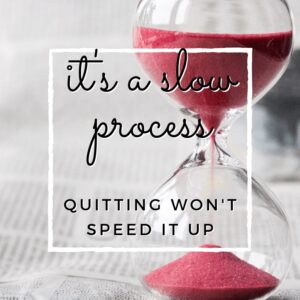
Let's Get To Work Managing Our Minds

Managing your mind is one of the most important things you can do for yourself. Our mental health is closely related to all domains of our lives, such as cognition, how we treat ourselves and others, and professional fulfillment. These areas also include how we respond to stress, make decisions, and assign meaning to life’s circumstances. It is then vital to notice what is going on in our minds and then find an appropriate outlet to redirect our thoughts.
This blog post will discuss several tools to combat negative emotions, such as anxiety, as suggested by Patanjali in The Yoga Sutras. As always, pick what works for you. Practice these tools as much as possible so you can love your mind and this life even more.
But first, let us discuss OBSTACLES

According to Patanjali, nine obstacles prevent an individual from staying on the path of yoga. I am not talking about staying on your yoga mat for an extended period of time. But rather remaining committed to making choices that make you feel better in your daily life. The emotions of stress, anxiety, fear, and overwhelm can all contribute to the below hindrances.
 Physical illness or disease (Vyādhi)- Our health is the most important thing. It is challenging to focus on anything other than being sick when we do not feel well. Sometimes our physical state of health is affected by what goes on in our minds. For instance, chronic stress is linked to severe health problems such as heart disease, high blood pressure, diabetes, and other illnesses. Mental disorders such as anxiety and depression can also result from an abundance of stress. Focusing on anything else cannot be fully attended to when we need our energy to heal our physical body.
Physical illness or disease (Vyādhi)- Our health is the most important thing. It is challenging to focus on anything other than being sick when we do not feel well. Sometimes our physical state of health is affected by what goes on in our minds. For instance, chronic stress is linked to severe health problems such as heart disease, high blood pressure, diabetes, and other illnesses. Mental disorders such as anxiety and depression can also result from an abundance of stress. Focusing on anything else cannot be fully attended to when we need our energy to heal our physical body.  Apathy, lack of interest and enthusiasm, or boredom (Styāna)- Beginning a new routine can feel exciting at first. Over time, our daily routines can start to feel mundane and stagnant. We may forget why we even began them in the first place. Boredom can provide feedback for what we may need to change. Other times it is a natural part of the process. The important thing is to keep going and make adjustments along the way.
Apathy, lack of interest and enthusiasm, or boredom (Styāna)- Beginning a new routine can feel exciting at first. Over time, our daily routines can start to feel mundane and stagnant. We may forget why we even began them in the first place. Boredom can provide feedback for what we may need to change. Other times it is a natural part of the process. The important thing is to keep going and make adjustments along the way. 
- Doubt of self-worth or ability (Samśaya)- For whatever reason, our brain likes to compare us to other humans. We tend to get caught up in what someone else has achieved and then make that mean something about our self-worth. The good news is not one human is more human than another. We are already 100% worthy simply because we are human. External sources such as financial success, career choices, or how well you perform on a test have nothing to do with your worthiness.
 Distraction, negligence & carelessness (Pramādā)- The human brain evolved with one thing on its mind- survival. Human’s choices were once limited. Either a person chose to survive or not. Dinner options usually included some sort of animal or plant. Either the person would leave the cave in search of food or not. Now, life has many choices. Some of these options promote health and focus, while others do not. Our days are filled with making decisions. Going down the chip aisle or browsing Netflix can feel overwhelming. Not to mention all the other things we have to make decisions about in our lives. Then there is the high-tech society that can distract us from being fully present in the world. Being inundated with decisions and stimuli can cause our minds to lose focus and revert to confusion, indecision, escapism, or carelessness.
Distraction, negligence & carelessness (Pramādā)- The human brain evolved with one thing on its mind- survival. Human’s choices were once limited. Either a person chose to survive or not. Dinner options usually included some sort of animal or plant. Either the person would leave the cave in search of food or not. Now, life has many choices. Some of these options promote health and focus, while others do not. Our days are filled with making decisions. Going down the chip aisle or browsing Netflix can feel overwhelming. Not to mention all the other things we have to make decisions about in our lives. Then there is the high-tech society that can distract us from being fully present in the world. Being inundated with decisions and stimuli can cause our minds to lose focus and revert to confusion, indecision, escapism, or carelessness.  Burnout (Alasyā)- Burnout results from excessive stress. I am sure we all can list several things on our “to-do” list; however, this is not necessarily what causes exhaustion. Our mental chatter can be enough to make us feel exhausted. Life’s circumstances are not necessarily stressful, but the thoughts we assign to these circumstances are what cause feelings of overwhelm.
Burnout (Alasyā)- Burnout results from excessive stress. I am sure we all can list several things on our “to-do” list; however, this is not necessarily what causes exhaustion. Our mental chatter can be enough to make us feel exhausted. Life’s circumstances are not necessarily stressful, but the thoughts we assign to these circumstances are what cause feelings of overwhelm.  Desire & Craving (Avirati)- Now, I don’t know about you. But my desire for things that are not “good” for me significantly increases when I feel overwhelmed, stressed, tired, or anxious. Indulging in these things usually makes me feel even worse. Then I continue making more poor choices because I feel like poop. The cycle of desire can be never-ending if we do not allow our urges to pass without giving into them.
Desire & Craving (Avirati)- Now, I don’t know about you. But my desire for things that are not “good” for me significantly increases when I feel overwhelmed, stressed, tired, or anxious. Indulging in these things usually makes me feel even worse. Then I continue making more poor choices because I feel like poop. The cycle of desire can be never-ending if we do not allow our urges to pass without giving into them.  Living under illusions & misunderstanding (Bhrāntidarśanā)- Have you ever said something to someone, and they took it completely the wrong way? This happens because we all have different ways of seeing the world. The narratives we assign to our experiences create our perception of the world. These are the stories we tell ourselves. Seeing the world through our own lens isn’t always a bad thing. But sometimes, our stories can cause us to see ourselves, people, and events not as they are, which leads to misunderstanding and disconnection.
Living under illusions & misunderstanding (Bhrāntidarśanā)- Have you ever said something to someone, and they took it completely the wrong way? This happens because we all have different ways of seeing the world. The narratives we assign to our experiences create our perception of the world. These are the stories we tell ourselves. Seeing the world through our own lens isn’t always a bad thing. But sometimes, our stories can cause us to see ourselves, people, and events not as they are, which leads to misunderstanding and disconnection.  Doubting progress & ability to succeed (Alabdhabhūmikatvā… say what?)- The brain likes consistency, routine, familiarity, and everything to be the same because that means we are safe and likely to survive. Doubt is a familiar feeling when starting something new because we take a chance of stepping into the unknown. Our brain also naturally look to our past to find evidence for what we can achieve in the future. When, in fact, our capability has nothing to do with our past experiences. We can also get discouraged when we do not make progress as fast as we think we should. Sometimes change occurs when we most want to quit.
Doubting progress & ability to succeed (Alabdhabhūmikatvā… say what?)- The brain likes consistency, routine, familiarity, and everything to be the same because that means we are safe and likely to survive. Doubt is a familiar feeling when starting something new because we take a chance of stepping into the unknown. Our brain also naturally look to our past to find evidence for what we can achieve in the future. When, in fact, our capability has nothing to do with our past experiences. We can also get discouraged when we do not make progress as fast as we think we should. Sometimes change occurs when we most want to quit.  Inability to maintain achievements (Anavasthitatvā)- The above eight obstacles can prevent someone from maintaining their achievements. Sometimes, I become careless and give in to desires that I know will not make me feel good the next day. Doubt then takes over, and I start to question my moral character. Next thing I know, I have lost all motivation to stay on the path of making better choices for my life. All behaviors are just feedback for what worked and what we can do differently. Yoga is a life-long practice that you can always return to no matter how many times you may get off track.
Inability to maintain achievements (Anavasthitatvā)- The above eight obstacles can prevent someone from maintaining their achievements. Sometimes, I become careless and give in to desires that I know will not make me feel good the next day. Doubt then takes over, and I start to question my moral character. Next thing I know, I have lost all motivation to stay on the path of making better choices for my life. All behaviors are just feedback for what worked and what we can do differently. Yoga is a life-long practice that you can always return to no matter how many times you may get off track.
Combating Obstacles
 Luckily, Patanjali outlines ways to combat these obstacles in Sutras 1.32-1.39 outlined below. Yoga is a lifelong practice. We can step away from the practice then choose to return at any time. Patanjali suggests that the above obstacles keep us stuck in our lives. They prevent us from making better choices and achieving our goals. The remedy for these obstacles is to focus on cultivating the opposite—for example, combat burnout with relaxation and doubt with faith.
Luckily, Patanjali outlines ways to combat these obstacles in Sutras 1.32-1.39 outlined below. Yoga is a lifelong practice. We can step away from the practice then choose to return at any time. Patanjali suggests that the above obstacles keep us stuck in our lives. They prevent us from making better choices and achieving our goals. The remedy for these obstacles is to focus on cultivating the opposite—for example, combat burnout with relaxation and doubt with faith.
- Spiritual one-pointedness is the best way to remove the obstacles. (1:32)

This Yoga Sutra suggests focusing the mind on a single object to eliminate barriers and distractions. I began this blog post at 3:30 am because my anxious thoughts were keeping me awake. I eventually got up and refocused my attention on writing when nothing else worked. Focusing my mind on one thing instantly reduced my anxiety. It was also the perfect time to write because the only distraction I had was my dog’s gigantic head on my lap and the sound of his muffled snore.
It is essential to focus on one thing while in an environment with limited distractions. Science has concluded that multitasking is bad for us. It can shorten your attention span and lower your brain capacity (IQ). Working on multiple tasks takes longer to complete, and your performance declines. Patanjali suggests the exact opposite of multitasking, which is the practice of focusing your mind on a singular focus. According to a UC Irvine study, it can take up to 20 minutes to recover from a single distraction. Make sure you set up your environment to limit as many distractions as possible.
*** No worries if you are unsure what to focus on. Patanjali covers different objects of focus in Sutras 1.33-1.39.
- Through the cultivation of:
Friendliness toward those that are happy
Compassion toward those who are suffering
Joy toward those who are virtuous
And equanimity toward those who are non-virtuous
There is a calming of the mind. (1.33)
This Yoga Sutra is one that anyone can implement at any time. If you’re feeling negative emotions, cultivate positive feelings towards others. Our lives would all be vastly different if we implemented this one Sutra alone.
Patanjali says there are four types of people we will encounter in the world. These four types are happy, unhappy, virtuous, and wicked people. We could have amicable encounters and relationships with others if we used friendliness, compassion, joy, and disregard when interacting with different people.
For example, when you encounter someone happier than you, use friendliness and share in their delight rather than jealously. We can use compassion toward those who are suffering. People’s unhappiness manifests differently. Sometimes it displays as frustration, anger, jealously, or spite. They may even direct these emotions toward us. Our peace of mind does not have to be affected by someone else’s suffering. Instead, imagine the cause of their state of mind and have compassion. When we encounter those that are virtuous, be inspired by their achievements rather than envious. Lastly, those who are non-virtuous (wicked) may have opposite values as we do, which is okay. We can disregard their actions and remain undisturbed by the errors of others.
- Or the mind becomes clear through controlled breathing, specifically exhaling and retaining the breath (1.34)

Or the mind becomes clear through controlled breathing, specifically exhaling and retaining the breath.
Patanjali offers different means of calming the mind to provide the individual with options. Another way to calm the mind occurs through the exhalation and retention of the breath. Science has found that when our exhale is a few seconds longer than the inhale, our vagus nerve tells the nervous system to calm down. Our nervous system and our breath are directly related. Think about how your breath changes when we experience different emotions. For example, when I am overwhelmed, my breath is short and fast. When I feel calm, my breath is long and deep.
Full oxygen exchange systematically activates the parasympathetic nervous system of our brain. This action manages the stress response in our brain, resulting from the sympathetic nervous system. Controlled breathing can lower stress and anxiety levels and deepen your focus.
- Or cultivating awareness can give us a more profound sense of calm and presence (1.35)-
 Or cultivating awareness can give us a more profound sense of calm and presence. Some of the most effective strategies to calm the mind involve our senses of touch, taste, sound, smell, and sight.
Or cultivating awareness can give us a more profound sense of calm and presence. Some of the most effective strategies to calm the mind involve our senses of touch, taste, sound, smell, and sight.
Some examples of engaging the senses include eating a nourishing meal (taste), stretching on your yoga mat (touch), listening to music (sound), and spending time in nature (sight and smell). Whatever activity you choose, make sure to focus your mind entirely on the task at hand. - Or by cultivating awareness of our inner divinity, we create a peaceful and calm mind (1.36)-
 Sometimes we can cultivate peace of mind by directing our focus on something bigger than ourselves. We all have narratives that we believe for whatever reason. Some of these stories create the opposite of happiness, which is hopelessness. Without hope, life has no meaning. Ask yourself what the greater purpose of a circumstance may be. For instance, when I struggled through grad school I constantly reminded myself the purpose of my struggles was to eventually land a good career. Take a step back when things don’t go your way and ponder what your struggles may lead you to.
Sometimes we can cultivate peace of mind by directing our focus on something bigger than ourselves. We all have narratives that we believe for whatever reason. Some of these stories create the opposite of happiness, which is hopelessness. Without hope, life has no meaning. Ask yourself what the greater purpose of a circumstance may be. For instance, when I struggled through grad school I constantly reminded myself the purpose of my struggles was to eventually land a good career. Take a step back when things don’t go your way and ponder what your struggles may lead you to. - Or we steady the mind by focusing upon someone peaceful and virtuous (1.37)-
 This Sutra suggests we focus our mind on someone who embodies the characteristics we wish to achieve. I often think of how my Grandma loved everyone (and I mean EVERYONE) without judgment when I question a challenging relationship. One of my favorite yoga teachers, Rod Stryker, is another person I turn to when I feel discouraged. I do not know him personally, but I have access to several of his teachings and writings that help guide me when I am unsure how to respond. Another option is to ask for help. Sometimes talking to someone lets us hear the stories in our brains out loud. Then we can assign these beliefs a new meaning if necessary.
This Sutra suggests we focus our mind on someone who embodies the characteristics we wish to achieve. I often think of how my Grandma loved everyone (and I mean EVERYONE) without judgment when I question a challenging relationship. One of my favorite yoga teachers, Rod Stryker, is another person I turn to when I feel discouraged. I do not know him personally, but I have access to several of his teachings and writings that help guide me when I am unsure how to respond. Another option is to ask for help. Sometimes talking to someone lets us hear the stories in our brains out loud. Then we can assign these beliefs a new meaning if necessary. - Or the mind can become calm when it is supported by sleep and the knowledge of enlightening dreams. (1:38)-

Get some sleep. Rest is one of the most effective ways to reset our minds and bodies. Sleep also allows us to rest and reset to be more present and aware during daily life. Our dreams can also have an extraordinary impact on our waking lives. For example, the sound “Yesterday” came to Paul McCartney in a dream. Einstein also turned to his dreams to help him find answers to his experiments. Our dreams can offer us great ideas we may not be aware of when awake. They also allow us to tap into the subconscious, process emotions and unlock creativity.
No worries at all if you are like me and are unable to sleep sometimes. The practice of Yoga Nidra, which is a form of relaxation, can give you the same benefits of sleep. Click here to learn more.
- Or we can calm the mind by placing our attention on a specific object that uplifts us (1.39)-
 The quality of our mind improves when we develop single-pointed concentration on an object. Patanjali shares various ways to calm and stabilize the mind. Ultimately, the individual needs to pick something that works for them. It’s the yogi’s choice. Focus on one thing at a time. For instance, when I engage in yoga’s physical practice, I focus on connecting my breath with my body’s movement. My husband focuses on the same elements when he skis. My friend Jennifer likes to go for walks or bake when she needs to slow her mind down (check out her incredible baking blog here). Pick something and stick with it if it cultivates the opposite of those emotions that hold you back from living your best life.
The quality of our mind improves when we develop single-pointed concentration on an object. Patanjali shares various ways to calm and stabilize the mind. Ultimately, the individual needs to pick something that works for them. It’s the yogi’s choice. Focus on one thing at a time. For instance, when I engage in yoga’s physical practice, I focus on connecting my breath with my body’s movement. My husband focuses on the same elements when he skis. My friend Jennifer likes to go for walks or bake when she needs to slow her mind down (check out her incredible baking blog here). Pick something and stick with it if it cultivates the opposite of those emotions that hold you back from living your best life.
Finding Your Inner Zen
 Yoga practitioners usually did not begin yoga because they had no issues keeping an even mind. At least, that was not the case for me. I would never say out loud half the things my mind throws at me. A majority of my thoughts are false, yet sometimes I find myself attaching to them and somehow convincing myself that they are true.
Yoga practitioners usually did not begin yoga because they had no issues keeping an even mind. At least, that was not the case for me. I would never say out loud half the things my mind throws at me. A majority of my thoughts are false, yet sometimes I find myself attaching to them and somehow convincing myself that they are true.
My brain especially likes to go over things I may have done wrong, causing me to feel anxious. I am fully aware anxiety is an indulgent emotion that pretends to have a role in life when really it serves no purpose. It is an emotion I have always struggled with. Sometimes I can rein it in. Othertimes I bomb and overreact or attempt to avoid reality. I try not to beat myself up either way.
Over the years, the practice of yoga has introduced me to different ways to manage my mind before it spins too out of control. I am not sure what my life or mind would be like had I not discovered these tools. I sincerely hope you find some of these things useful so that you too can make better choices, be a little kinder, and enjoy living this life of yours.
Contemplation Points
Here are some more specific ways you can implement each Sutra:
1.32- What are some of the things you do that make you forget to eat? For me, I can write all day and be 100% content the entire time (except for when my back starts hurting). Engage in one or more of these things when you feel negative emotions.
1.33- Relationships are complex and can be challenging. Who in your life are you struggling with? How can you cultivate more friendliness, joy, and evenness of mind toward them. Remember hate breeds hate. Finding a way to understand others suffering will alleviate your own suffering toward that person.
1.34- Try these steps for controlled breathing:
- Inhaling on a rhythmic count through the nose (slow count of 4 seconds)
- Holding the breath for about the same time (4 seconds)
- Exhaling through the nose on a slower or longer count than breathing in (slow count of 6 seconds)
1.35- How can you engage your senses to refocus your mind? Some examples include moving your body, getting out in nature, cooking, listening to music, etc.
1.36- In what ways are you struggling right now? In what way may these challenges be necessary now to help lead you to where you want to be in the future?
1.37- Who in your life do you wish to be more like? You do not need to know this person necessarily. What qualities does this person have that you wish to emulate? How can you begin to foster these qualities right now?
1.38- How can you wind down before bed to ensure you can easily fall asleep? In what ways do you need to slow down and make time for relaxation? If you are unsure where to start, you can check out the practice of Yoga Nidra here.
1.39- How can you make time in your day to do more of what you love? Maybe cut out social medial time, wake up a little earlier, or structure your time differently? Then do whatever lights you up as much as you can (preferably daily).








Nice blog post this week
Thank you, Joe 🙂
So many good points! Thanks for making these practical.
Thank you, Selina for reading!!!